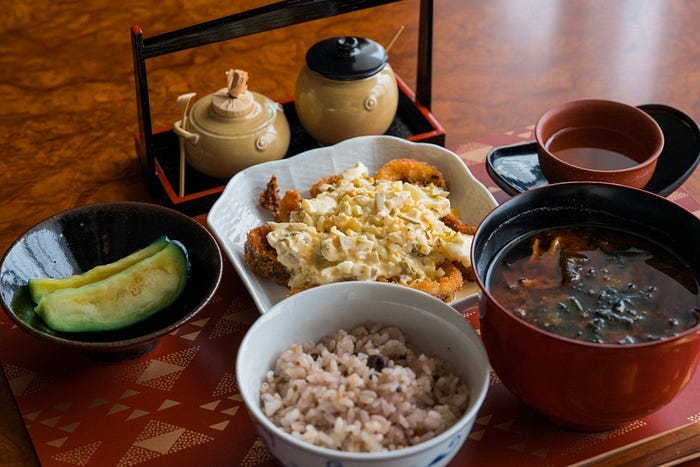Why Are There Few Vegetarians in Japan?
Only about 5% of the population are vegetarians in the country of Tofu and Wakame
As a Pescatarian, I have keenly observed the situation of vegans and vegetarians in both the UK and Japan.
The UK is the birthplace of the term ‘Vegan’, and it is now estimated that 2–3% of the UK population are vegans, whilst vegetarians account for 10%. In Japan, on the other hand, the percentage of vegans is not so different from that in the UK, but the number of vegetarians seems to be about 5%.
An English friend said it was surprising, given that many Japanese ingredients were suitable for vegetarian dishes. That is true, so I will explore why there are so few vegetarians in Japan.
We have to eat everything on the plate

In Japan, our relationship with food is deeply rooted in our culture. We are disciplined to eat everything on the plate at home and school, a practice that reflects our respect for food and the effort that goes into its preparation.
The phrase ‘There are seven deities in a grain of rice’ is, in particular, a familiar concept, reflecting our unique way of thinking. There are several theories about what these deities refer to. Some say they represent the seven natural blessings needed in making rice: the sun, clouds, wind, water, soil, insects, and people. Regardless of the interpretation, the phrase underscores the preciousness of rice and other food, leading to a cultural norm where it is considered bad manners to leave even a single grain uneaten in your bowl.




